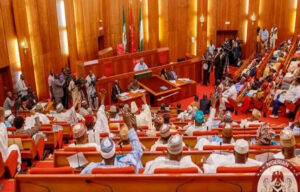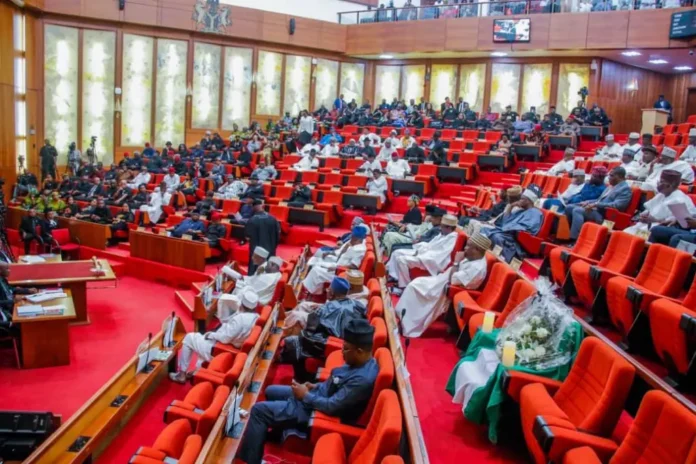The Senate on Thursday passed the Second Reading of the proposed Tax Reform Bills, sparking intense debate among lawmakers. While the legislation aims to overhaul Nigeria’s tax system, concerns about timing, consultation, and specific provisions remain unresolved.
Presenting the bills, Senate Leader Michael Opeyemi Bamidele emphasized their significance in simplifying the tax system and reducing burdens on small businesses. He explained that the proposed legislation seeks to streamline tax collection, eliminate double taxation, and boost individual incomes through targeted exemptions.

Bamidele highlighted plans to exempt individuals earning below the minimum wage from Pay As You Earn (PAYE) tax, provide tax exemptions for small businesses with annual turnovers below ₦50 million, and reduce corporate income tax from 30% to 25% by 2026. He also noted that multiple taxes would be consolidated into a single levy to fund the student loan scheme by 2030.
Bamidele revealed that the bills propose reallocating Value Added Tax (VAT) revenues to give states a greater share, increasing their allocation from 15% to 55%, while the Federal Government’s share would drop to 10%. Local Governments’ allocation would remain unchanged. He assured that essential items such as food, medical services, and electricity would remain VAT-exempt.
While some senators supported the reforms, others raised concerns. Former Bayelsa State Governor Seriake Dickson commended the focus on derivation, which he said would incentivize states to increase productivity. However, he criticized the lack of prior consultation with stakeholders and urged for more engagement moving forward.
Senator Ali Ndume of Borno South strongly opposed parts of the proposed legislation, particularly the derivation principle, arguing that it requires constitutional amendments. He also criticized the timing of the reforms and suggested withdrawing the bills to allow for further consultations with governors, the National Economic Council (NEC), and traditional rulers. Ndume argued that stakeholder involvement was critical to the success of the bills.
Senator Tahir Monguno disagreed with Ndume, insisting that consultations could continue during public hearings, where stakeholders would have the opportunity to express their views.
Following extensive debate, the Senate passed the Second Reading of the bills through a voice vote and directed the Senate Committee on Finance to review the proposals and report back within six weeks.
The reforms are part of broader efforts to reposition Nigeria’s economy by fostering fiscal discipline and boosting revenue generation. However, their success will depend on resolving contentious issues and securing widespread support.




